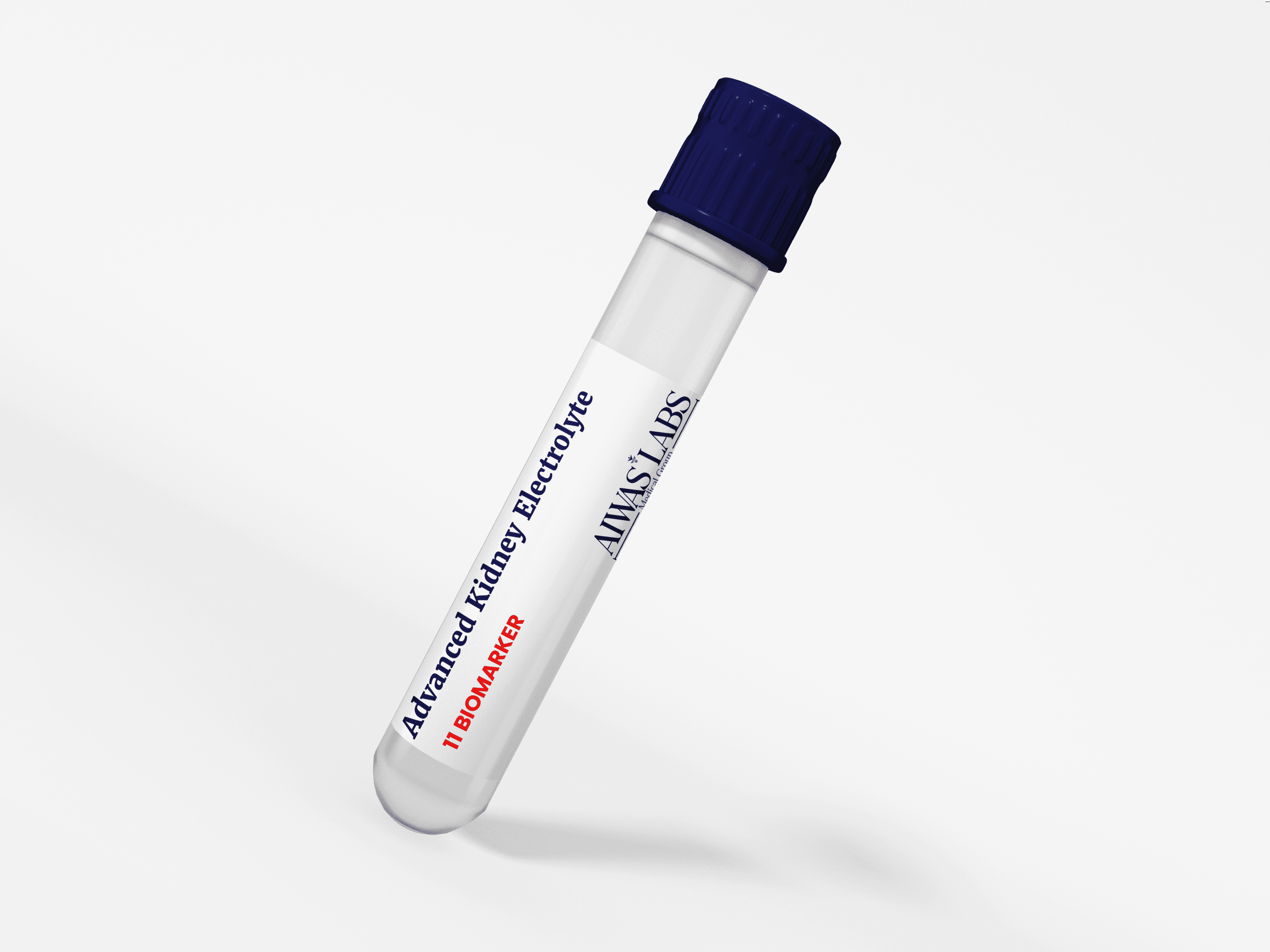
Frequently bought with this test
Advanced Kidney & Electrolyte Screen
Your kidneys do more than just filter waste - they help regulate essential minerals, control fluid balance, and keep your heart, muscles, and nerves functioning properly. Whether you're experiencing symptoms like fatigue, muscle cramps, or high blood pressure, managing a health condition, or simply want to stay ahead of potential issues, this comprehensive screen provides valuable insight into how well your kidneys and mineral balance are supporting your overall health. It’s a smart, proactive step for anyone looking to better understand their body and feel their best.
5/5
£79
Frequently bought with this test
Book Your Appointment
Ready to Book?

Health Insights, Made Personal
Understand what your results mean with a personalised doctor's report.
Gain expert insights and clear next steps tailored to your health journey.
- Practical, easy-to-follow advice
- Guidance from your personal doctor
- Personalised health recommendations
Know What you're Taking
Essential information about your test
What's in the test
What we measure:
- Creatinine - Creatinine is a waste product produced by muscles during everyday activity. It's released into the bloodstream and filtered out by the kidneys, making it a reliable indicator of how well your kidneys are functioning. Monitoring creatinine provides important insight into your body’s ability to clear waste effectively.
- Urea - Urea is formed when your body processes protein, with the liver breaking it down into this waste product. It’s then carried through the bloodstream to the kidneys, which remove it and pass it out in urine. Checking urea levels in the blood can offer useful clues about how well your kidneys are clearing waste and how efficiently your liver is handling protein metabolism. However, because your body can often compensate with just one healthy kidney, results may appear normal even if some kidney function is impaired.
- eGFR - Estimated glomerular filtration rate (eGFR) is a key measure of how efficiently your kidneys are filtering waste from your blood. It reflects the function of tiny filtering units in the kidneys called glomeruli. When these filters aren’t working properly, waste can build up in the body.
- Sodium - Sodium is an essential mineral that helps regulate fluid balance, blood pressure, and nerve and muscle function. Most of the body’s sodium is found in the blood and surrounding fluids, where it plays a key role in keeping cells hydrated and functioning properly.
- Potassium - Potassium is a vital mineral that supports many key functions in the body, including maintaining normal heart rhythm, muscle contractions, and nerve signals. Most potassium is stored inside cells, but the small amount circulating in your blood must be kept within a narrow range to keep your body functioning properly
- Chlorine - Chloride is an important electrolyte that helps maintain your body’s fluid balance, blood pressure, and pH levels. It works closely with other minerals like sodium and potassium to support proper hydration and the function of your nerves, muscles, and organs. Chloride levels can shift due to dehydration
- Magnesium - Magnesium is an essential mineral that supports a wide range of bodily functions, including muscle movement, nerve signalling, energy production, and heart rhythm regulation. It also plays a key role in helping the body relax - making it important for healthy sleep patterns and stress management. Magnesium works in balance with other minerals like calcium and potassium, and low levels can lead to symptoms such as fatigue, muscle cramps, poor sleep, or anxiety. Monitoring magnesium helps assess your overall wellbeing, especially if you're experiencing low energy, disrupted sleep, or stress-related symptoms
- Phosphate - Phosphate is a mineral that plays a vital role in building strong bones and teeth, producing energy, and supporting healthy muscle and nerve function. It works closely with calcium and vitamin D to maintain bone health, and it's also involved in the body’s energy systems at the cellular level.
- Calcium - Calcium is best known for its role in building and maintaining strong bones and teeth, but it also plays a crucial part in muscle movement, nerve communication, and heart function. Most of the body’s calcium is stored in bones, with a small but essential amount circulating in the blood to support vital functions. Imbalanced calcium levels may indicate issues with the kidneys, hormones, or nutrition. Testing calcium helps assess bone health, muscle performance, and overall metabolic stability.
- Carbon Dioxide - Carbon dioxide (CO₂) in a blood test reflects the amount of bicarbonate in your bloodstream, which helps maintain the body’s acid-base (pH) balance. Although we often think of CO₂ as a gas we exhale, in the blood it plays a key role in keeping your internal environment stable. Abnormal CO₂ levels can indicate issues with breathing, kidney function, or how your body manages acidity. Low levels may point to conditions like metabolic acidosis, while high levels can suggest problems like dehydration or lung-related disorders. Measuring CO₂ gives insight into how well your lungs and kidneys are working together to keep your body in balance.
- Anion Gap - The anion gap is a calculated value that helps assess your body’s acid-base balance - essentially how well your body is maintaining the right pH in your blood. It looks at the difference between positively and negatively charged electrolytes, such as sodium, chloride, and bicarbonate.